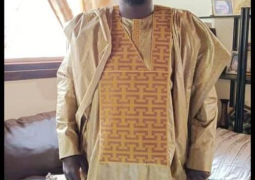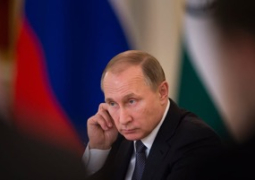His loss is akin to a brilliant celestial body abruptly extinguished in the vast cosmic theatre.
Yet, drawing solace from the eloquent verse of William Shakespeare, we find comfort in the belief that Dida's brilliance will perpetually guide us from the celestial heavens as countless, shimmering stars.
The shockwaves of Dida's premature transition reverberate through the grand amphitheatre of history, profoundly unsettling the foundations of The Gambia, Africa, and indeed, the global stage. His multi-faceted persona, akin to a dazzling constellation, was a brilliant assemblage of talents. As an intellectual luminary, journalist, author, Pan-Africanist, political pundit, scholar, activist, and visionary, Dida generously radiated his profound wisdom and rich experiences onto those fortunate to bask in his illuminating presence.
Assuming the esteemed role of an intellectual luminary, Dida stood as a bright lighthouse of wisdom and enlightenment. His doctrines echoed the profound insights of renowned African philosophers, like the illustrious Leopold Senghor, the esteemed champion of Negritude, a theory that celebrated the unique cultural values of the African world. Much like a dedicated gardener nurturing budding flora, Dida diligently cultivated myriad minds, fostering an enriched understanding and broadened perspective of the shared tapestry of human experiences.
Taking on the mantle of a Pan-Africanist savant, Dida reflected the indomitable spirit and grand vision of legendary figures like Kwame Nkrumah and Julius Nyerere. He held a steadfast faith in the compelling power of unity, the inherent strength of communal values, and the shared dreams of the African continent. He harbored a vision of an Africa unchained, emblematic of freedom and prosperity, where education, justice, and respect for human rights evolved from abstract concepts into tangible realities.
As an astute thinker, Dida's intellectual prowess mirrored luminaries like W.E.B. Du Bois and Frantz Fanon. His discerning reflections on societal structures, political dynamics, and cultural shifts painted an intricate tapestry of the African continent and its complex interplay within the global panorama. Fearlessly confronting uncomfortable truths, he harnessed his formidable intellectual arsenal to challenge the status quo, echoing the audacity of Fanon's critical post-colonial discourse.
In his capacity as an accomplished writer, Dida's pen danced gracefully across the parchment, echoing the eloquence and lyricism of literary maestros like Chinua Achebe and Ngũgĩ wa Thiong'o. His words, akin to the soothing cadence of rain falling upon the African savannah, quenched the collective thirst for truth and justice. His narratives, resplendent with tales of resilience, struggle, and hope, amplified the voices of the silent, empowered the marginalized, and heralded the dawn of transformative change.
In his role as an inspirational educator, Dida followed the grand tradition of African educators like Kwegyir Aggrey and Cheikh Anta Diop. His relentless passion for fostering knowledge and nurturing young minds sparked the flame of critical thinking and intellectual curiosity, transcending traditional educational confines. He instilled a sense of civic duty, kindled cultural pride, and empowered generations with the confidence and conviction to shape their destiny.
One of the minds he had the privilege of nurturing was that of Lawyer Malick F. Mbai during his tenure at Marina International School. Dida took immense pride in his students' growth and success, seeing in them the future torchbearers of societal progress. The joy he felt upon reconnecting with Malick, many moons after their time at Marina, was reminiscent of a gardener beholding a seed he had planted, grow into a magnificent tree. Seeing Malick, now a well-rounded scholar practicing law and winning cases, filled him with an ecstatic sense of fulfillment.
Our paths intertwined in the summer of 2003, at the precipice of my journalistic journey. As an eager neophyte at The Point Newspaper, I was introduced to Dida by the late Deyda Hydara, a respected luminary in Gambian journalism. This chance encounter ignited a deep camaraderie, richly textured by shared experiences and mutual respect, which shaped my professional landscape.
Upon our first meeting, I was struck by Dida's radiant smile and humility, which filled the room with an undeniable warmth. That day, I found myself entrusted with the task of chronicling the inauguration of a library at the Kotu Senior Secondary School, a project that was close to Dida's heart. Witnessing his fervent commitment to this initiative underscored his belief in the transformative power of knowledge and further cemented his role as an inspirational educator.
In retrospect, every interaction I had with Dida Halake Jallow during my days in the Gambia as a reporter, columnist, and editor was a teaching moment. His boundless enthusiasm and infectious positivity left an indelible impression on everyone he interacted with. The events we shared, from that memorable foundation stone laying at the Kotu Senior Secondary School to the cocktail reception during which he once again dazzled with his intellectual sophistication as he engaged the Cuban diplomats in thought-provoking conversation regarding Cuban foreign policy, its seemingly never-ending diplomatic embroilment, and how Cuba managed to become what it is in the face of US sanctions, painted a portrait of a man deeply committed to his beliefs and the causes he held dear.
Despite the accolades of international stature and the prestige of high-ranking positions, Dida embodied humility. He interacted with every individual, whether a seasoned politician navigating the corridors of power, a diligent journalist weaving stories of truth, a hardworking farmer toiling on fertile land, or even a beach boy, colloquially known as a "bumster," seeking livelihood by the ocean's edge, with equal respect and kindness. His smile, his attentive ear, and his willingness to help were consistently present. This behavior reaffirmed the dignity of humility, regardless of his esteemed status.
His affinity for The Gambia and the entire African continent was palpable, resounding with every heartbeat of his dedicated soul. A committed Pan-Africanist, he vested his faith in the potency of unity, the robustness derived from communal values, and the latent potential of a shared future. He envisioned an Africa united, epitomizing freedom. In his vision, education, justice, and respect for human rights evolved from conceptual ideals to actual realities for all.
Dida's life was a harmonious symphony of love and dedication. He found his soulmate in a Gambian woman, and their blessed union bore the divine gift of a daughter. His profound faith as a Muslim guided his life's journey, shaping his actions and ideologies. He embodied and practiced the principles of compassion, justice, and integrity, reflecting them in every facet of his life.
He shared a special bond with the Mbai family, particularly with Pa Nderry Mbai, a connection that was nourished through their shared dedication to journalism and an unwavering pursuit of truth. He also held Uncle Fafa Mbai in high esteem, often praising his intellectualism and public service in his writings. His profound admiration for Uncle Fafa was a testament to the virtues of intellectual rigor and dedication to public service that he fervently espoused. His relationship with the Mbai family extended beyond the professional, sinking roots deep into personal connection, a sentiment that was keenly felt with his passing.
Years later, while I found myself in the US, a reconnection with Dida was sparked through my blog, the "Fana Fana Journal." I dedicated an article to him, entitled "Gambian Personality of the Month, Dida Halake". This tribute prompted a heartfelt response from Dida that still warms the corners of my heart.
"Well, well, well, Mr. Mbye, I am flattered. Thank you for your kind words. I hope you have seen my Open Letter to BOSS, which means I am Persona Non-Grata to my Beloved Gambia. I am glad to put a face to the reporter who covered my Library project at Kotu SSS. We were to return and meet your boss Deyda again a month later - but they shot him the day before we landed in The Gambia. God Bless wherever you are."
Despite the geographical distances that stretched between us, our bond remained unbroken, nurtured by his occasional calls and his inquiries about my well-being. The bond we shared transcended professional norms and delved into the realm of personal connections, an enduring testament to our shared journey.
In a chance encounter with my sister, a traffic police officer, Dida's composure crumbled, and he broke into tears, deeply saddened by the death of Pa Nderry. In a moment of shared sorrow, he offered my sister 3000 Dalasis to be given to Pa's mother, a heartfelt gesture that spoke volumes about his compassionate spirit.
During a conversation following this encounter, we exchanged numbers with a commitment to maintain our connection. Yet, as life often would have it, my work and school obligations made it increasingly difficult to keep in touch. Looking back, I carry a tinge of regret, wishing that I had made more effort to sustain this invaluable bond.
The news of Dida's death arrived like a harsh winter storm, numbing me with a profound sadness. The world had lost an extraordinary human being, a man of great repute, intellect, and steadfast patriotism for Africa. His life was a beautiful symphony of love and dedication, perfectly harmonized by his faith as a Muslim.
As we remember Dida, we find solace in the belief that he has found peace, resting in the boundless fields of eternity. We bid farewell to Dida Jallow-Halake with heavy hearts filled with respect and gratitude. Farewell, Dida, your spirit lives on in the ideas you propagated, the lives you touched, and the changes you instigated. Until we meet again in the boundless fields of eternity, your legacy will continue to guide us, like the north star guiding lost sailors home.




